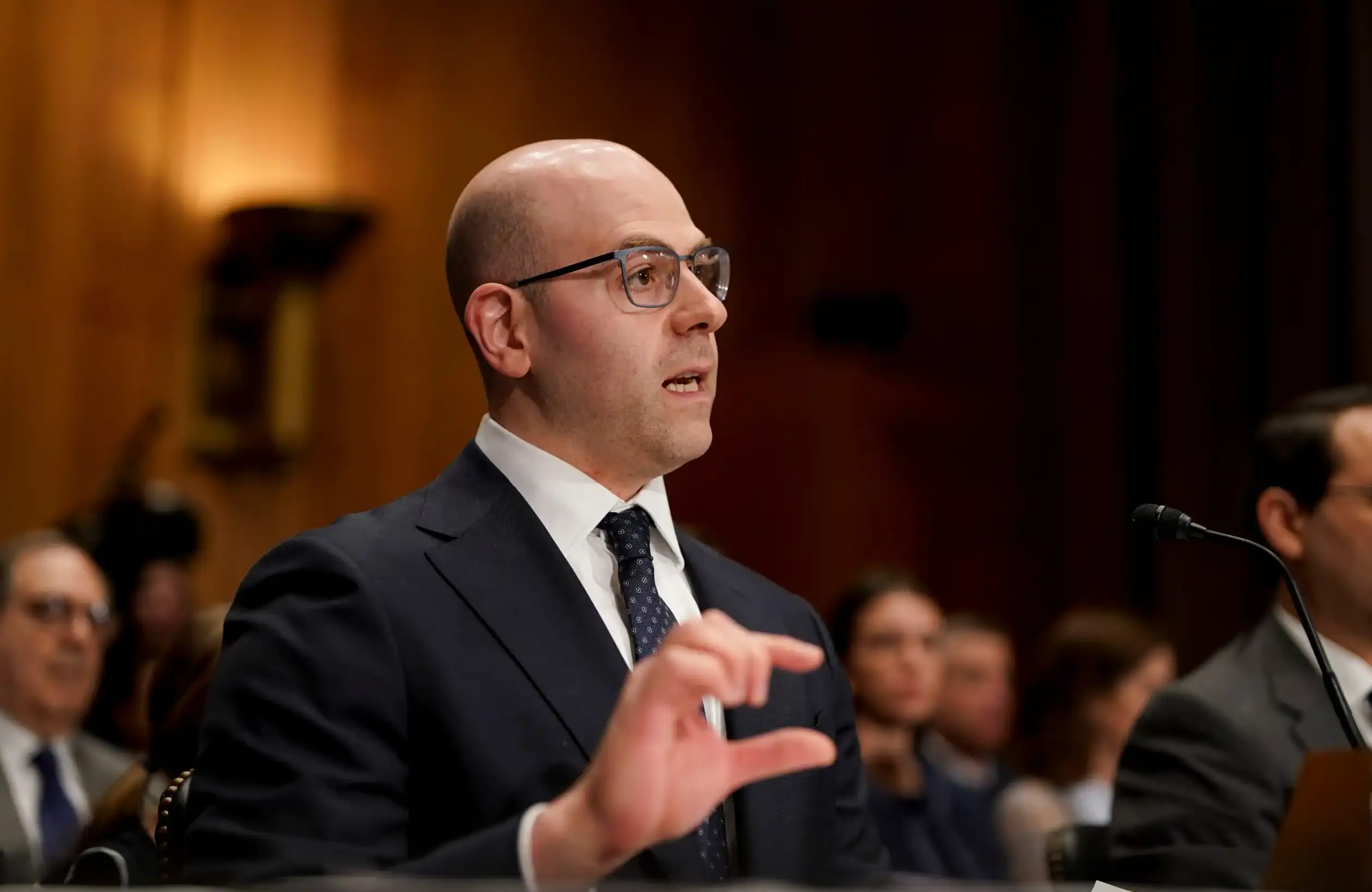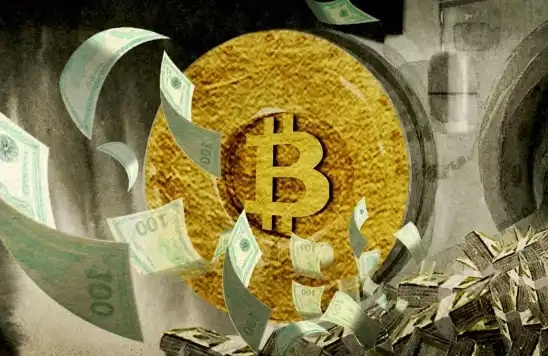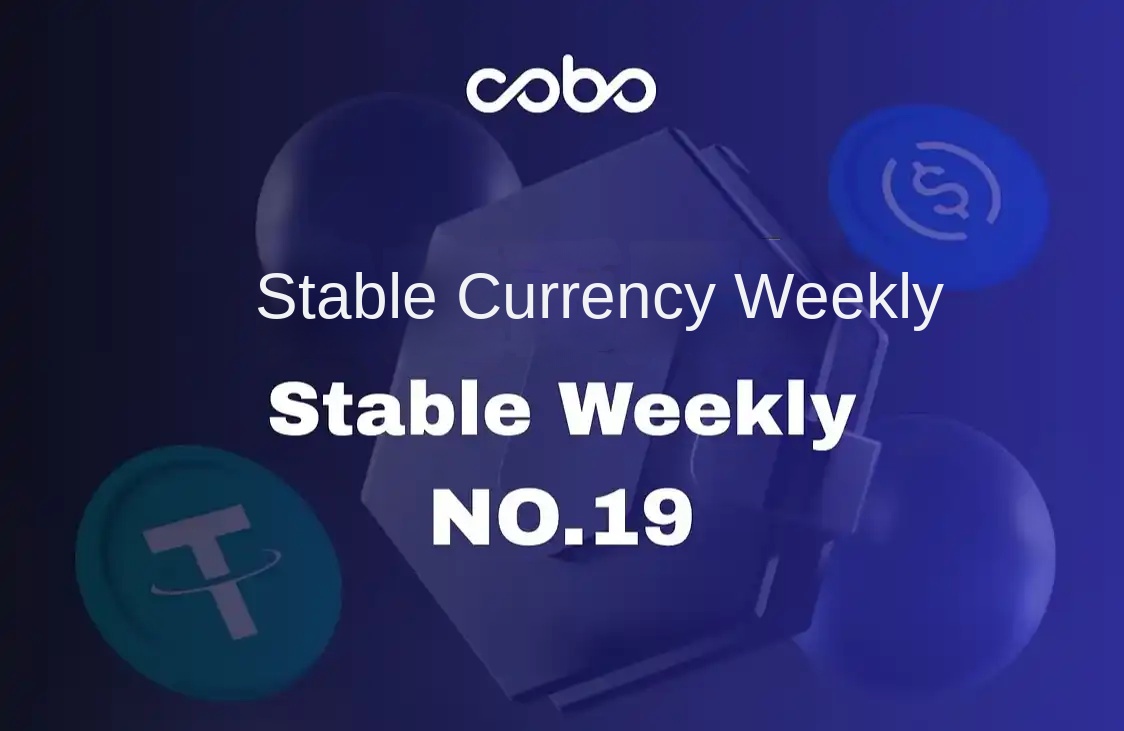Trump Installs "Crypto Ally" as Federal Reserve Transition Director, What's the Impact?
Original Title: "Trump Appoints 'Crypto Ally' as Fed Transition Director, What's the Impact?"
Original Source: BitpushNews
On Thursday local time, as Wall Street was nearing the close of trading, U.S. President Trump announced on Truth Social the appointment of Stephen Miran, Chair of the White House Council of Economic Advisers (CEA), as a Federal Reserve Board Governor to succeed the recently departed Adriana Kugler. His term is tentatively set to expire on January 31, 2026.
According to Politico, the White House was not yet prepared to announce a successor to current Fed Chair Powell, making Miran's appointment both a "stopgap measure" and a "political signal."
Will this brief "Fed audition" become an unexpected booster for the crypto industry? And in the current environment of Fed rate cut expectations and a weakening dollar, what does Trump's appointment of Miran signify?
Who is Stephen Miran? The Crypto 'Ally' from Harvard to the White House
Stephen Miran has an economics background from Harvard University and has had a career spanning the investment and policy domains. Prior to joining the Trump team, he served as an investment partner at Amherst Peak Advisors and as a senior strategist at Hudson Bay. It's worth noting that Hudson Bay was deeply involved in the post-bankruptcy debt trading of FTX — the cryptocurrency exchange that went bankrupt at the end of 2022, and its founder Sam Bankman-Fried was sentenced to 25 years in prison in November 2023 on seven charges including telecom fraud.
After joining the Trump camp in 2023, Miran quickly rose to prominence, becoming Chair of the White House Council of Economic Advisers in March 2025. As a typical conservative economist, he firmly supported Trump's tariff policies and repeatedly advocated for "rate cuts" and a "reassessment of the strong dollar policy."
In the cryptocurrency field, Miran has shown a rare openness. In December 2024, Stephen Miran, as Chair of the White House Council of Economic Advisers, was invited to participate in the popular financial podcast show "Forward Guidance" with host Joseph Wang (former NY Fed trader Fed Guy). In the latter part of the show, Miran discussed the issues brought about by the regulatory chaos in cryptocurrencies, stating:
「Perhaps we really should simplify a significant amount of regulation and allow innovative industries like crypto to truly take off.」

At that time, the U.S. crypto regulation was in turmoil, with the SEC and CFTC unable to agree on token classification, and the Coinbase and Binance cases yet to be concluded. Milan's remarks were seen by many in the industry as the "White House's first friendly signal." As the CEA chair, his views, while lacking legislative power, serve as a "bellwether" in policy trends and regulatory discussions.

It is worth noting that Milan is not blindly supporting the crypto industry; he opposes the current reality of fragmented regulation, repetitive approvals, and legal ambiguity, rather than regulation itself. He pointed out in the program:
· The current dispute between the SEC and CFTC over the nature of crypto assets (securities vs. commodities) has significantly affected the compliant operation of innovative companies;
· The White House should promote a more coordinated regulatory framework, "so that entrepreneurs are clearly aware of the compliance roadmap";
· Regulation that is truly favorable to innovation is not "no regulation" but "clear rules and defined responsibilities".
This view, unlike that of traditional crypto extremists, is closer to institutional compliance-oriented crypto supporters – such as Coinbase CEO Brian Armstrong – have been advocating.
According to Coindesk, Milan had also privately participated in discussions on the ambiguity of the SEC and CFTC's token regulatory classification.
If Milan continues to publicly express his attitude towards rationalizing crypto regulation during his Fed tenure, even if it does not directly influence policy-making, it could become a significant catalyst for market sentiment and even accumulate enough voice to become a "potential Board nominee" after 2026.
Fed Policy: The "Entry" of Interest Rate Cut Advocates
「He just came to warm the seat," Mark Spindel, the author of "The Independence of the Fed," commented, "After a few meetings, he was out.".
Indeed, looking at the timeline, Milan participated in a maximum of three Federal Open Market Committee (FOMC) meetings – September, October, and December – with an extremely limited structural impact on the annual interest rate path.
But that doesn't mean Milan's voice is meaningless. In the increasingly intense interest rate game in the second half of 2025, a board member's voting rights are enough to make the market nervous.
On the monetary policy front, Milan can be considered a typical Trumpist economist: supporting "Made in America," questioning the strong dollar strategy, and advocating for interest rate cuts to stimulate growth.
During 2023-2024, in his writings and public speeches, he repeatedly pointed out that the Fed's continued high-interest rate policy was "extremely detrimental to U.S. manufacturing and exports," calling for "a more proactive monetary policy to complement industrial policy." He is also one of the very few senior officials during his tenure at the CEA to publicly state that "an overly strong dollar is not in the national interest."
This point resonates with Trump's continued criticism of Powell. Trump himself has complained on numerous occasions in public: "Powell has messed everything up, high-interest rates have made the U.S. uncompetitive." Milan, from an academic perspective, endorses this view, reinforcing the White House's position that "interest rates should serve growth objectives."
Although Milan is unlikely to change the Fed's interest rate path in the short term, if he promotes the narrative within the Fed that "inflation is under control, and attention should be paid to employment and investment," it will undoubtedly provide the market with new policy imagination space. Especially in the current environment of high U.S. bond yields and a weakening U.S. dollar index, the "return of rate cut expectations" is becoming a focus of the capital markets.
Since the beginning of this year, the safe-haven status of the U.S. dollar has been facing unprecedented challenges. According to FactSet data, in the first half of 2025, the U.S. Dollar Index (DXY) has fallen by over 10%, marking the weakest first-half performance since 1973. The U.S. dollar, which used to strengthen during financial market volatility, is now rising alongside long-term U.S. bond yields, exhibiting the "anomalous" characteristics typically seen in emerging markets.

Some analysts point out that Milan's challenge to the "strong dollar consensus" is forming the "embryo of a new consensus." In a paper, he questions, "Is a strong dollar really in the national interest? Should a more flexible exchange rate mechanism be considered for export-oriented manufacturing?" Such views are gradually gaining ground within the Trump administration.
How should the crypto market view Milan's entry?
For the crypto industry, Milan's temporary incumbency may mean:
Warming Policy Environment: His stance strengthens the White House's interest in crypto and may also drive clearer regulatory integration.
Risk Asset Sentiment Heating Up: If he pushes for interest rate cuts or guides towards loose expectations, risk assets like BTC, ETH, etc., will directly benefit.
USD Trends Impact Stablecoins and Cross-Border Payment Pathways: A weak dollar strategy will increase the attractiveness of cryptocurrencies in international payments.
While Milan is not a lawmaker and cannot single-handedly change the course of the Federal Reserve, his views have already been shaping the macro sentiment framework for the second half of 2025. This scholar-turned-policy-maker, his true stage may be far more than just these short five months.
References:
· MarketWatch: Trump taps Miran for Fed seat
· Politico: Trump picks economic adviser Miran for Fed post
· Forward Guidance Podcast (2024.12)
· FactSet, ICE Dollar Index
Welcome to join the official BlockBeats community:
Telegram Subscription Group: https://t.me/theblockbeats
Telegram Discussion Group: https://t.me/BlockBeats_App
Official Twitter Account: https://twitter.com/BlockBeatsAsia
 Forum
Forum

 Finance
Finance
 Specials
Specials
 On-chain Eco
On-chain Eco
 Entry
Entry
 Podcasts
Podcasts
 Activities
Activities
 OPRR
OPRR









